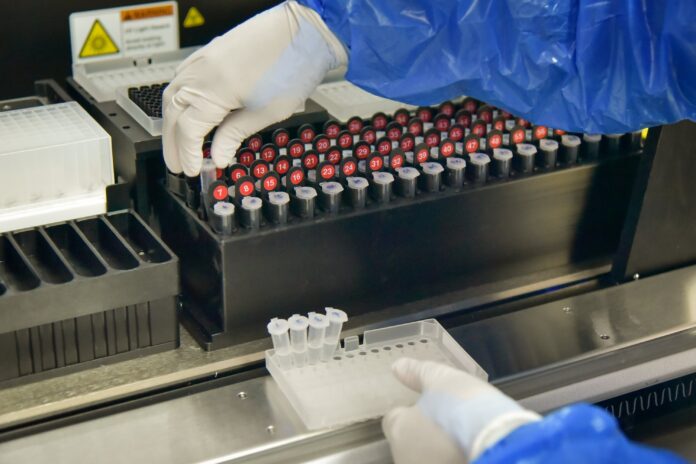A medical worker conducts Covid-19 polymerase chain reaction tests. — Bernama photo
KUALA LUMPUR (Oct 1): There is no Mu Covid-19 variant detected from samples taken across the country so far, the Ministry of Science, Technology and Innovation (Mosti) announced.
In a statement today, it said 1,312 samples have been analysed as of Sept 30 by a consortium comprising seven laboratories under Mosti, Ministry of Health, and higher education institutions under the Ministry of Higher Education.
The laboratories are the Malaysia Genome Institute, Institute for Medical Research (IMR), UKM Medical Molecular Biology Institute (UMBI), Tropical and Infectious Diseases Research Centre (TIDREC) of Universiti Malaya (UM), UM Medical Microbiology Department, Integrative Pharmacogenomics Institute (iPromise) of Universiti Teknologi Mara, and Institute of Health and Community Medicine of Unimas.
Of the total samples analysed, 94.9 per cent or 1,246 samples were identified as Delta variant, 11 were Beta variant, and 55 were other variants.
“The Delta variant is known to be more dangerous with higher infectivity rate and can rapidly cause a new local cluster,” the statement read.
The statement said information on Covid-19 variants is crucial to enable the government to take appropriate and specific measures to curb and control the spread of dangerous variants and intensify the local vaccine development programmes.
It said Mosti had also approved an allocation of RM3,227,200 under its Strategic Research Fund to finance the genome surveillance project on the SARS-CoV-2 virus which causes Covid-19.
The project is expected to complete 3,000 genome sequencing of SARS-CoV-2 viruses especially the variants of concern (VOC) like Delta and the variants of interest (VOI) like Lambda dan Mu.
Mosti also announced an additional allocation of RM13.9 million to the seven-laboratory consortium to facilitate collaboration and generate their research findings in the field of SARS-CoV-2 viral infectious diseases, thus become the catalyst for local vaccine development.
“With the additional allocation from Mosti, it is expected that the consortium can complete additional 10,000 genome sequencing of the SARS-CoV-2 viruses,” it said. — Bernama


